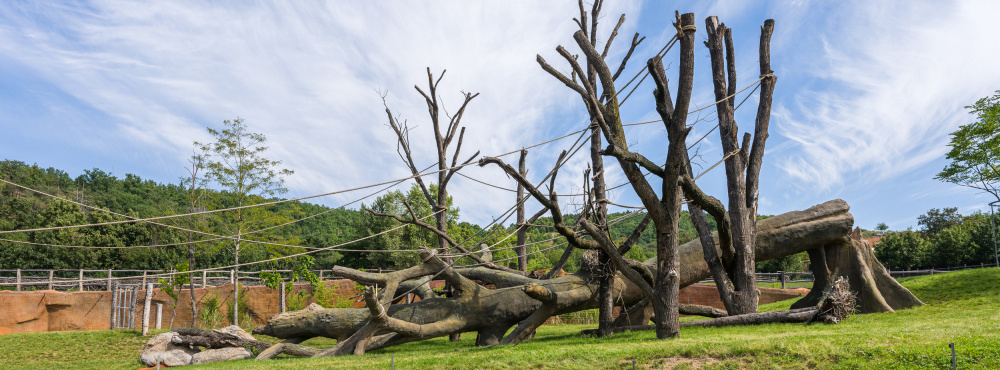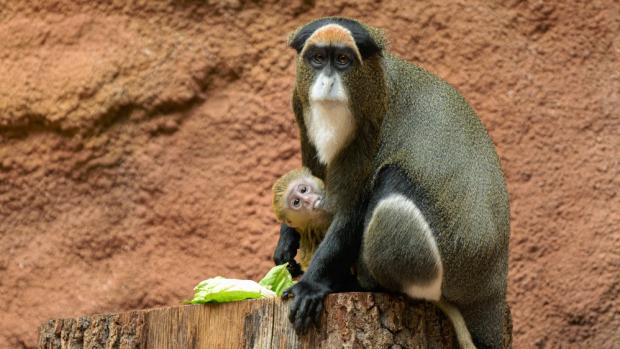De Brazza’s monkeys

 The De Brazza’s monkeys have been living in the Dja Reserve since 2022 and successfully raised their first infants just one year after arriving. Photo: Petr Hamerník, Prague Zoo
The De Brazza’s monkeys have been living in the Dja Reserve since 2022 and successfully raised their first infants just one year after arriving. Photo: Petr Hamerník, Prague Zoo
The white-bearded, orange-browed De Brazza’s monkeys share a mixed exhibit with vividly orange red river hogs in Prague Zoo’s Dja Reserve.
In the wild, De Brazza’s monkeys inhabit swamps, bamboo and montane forests across central Africa. They spend most of their time in the trees but are not afraid to come down to the ground. If one member of the group spots danger, it will call out to the others, who then freeze and blend into the surrounding foliage. Interestingly, these monkeys produce different alarm calls depending on the type of threat—one for ground-based predators such as leopards, and another for aerial threats like birds of prey. De Brazza’s monkeys are also among the few guenon species known to form monogamous pairs, although they may also live in harems consisting of one dominant male and up to ten females.
These highly intelligent primates are naturally inquisitive. After moving into the zoo in 2022, they put their new exhibit—as well as their off-display quarters—to the test, attempting to unscrew light fixtures and tamper with the irrigation system on the walkway above.
Although not currently considered endangered, De Brazza’s monkeys face significant threats across much of their range due to hunting for meat and the pet trade, as well as widespread habitat loss to human settlements, farmland and plantations.
ZOOPRAHA.CZ
Contacts
- The Prague zoological garden
U Trojskeho zamku 120/3
171 00 Praha 7
Phone.: (+420) 296 112 230 (public relations department)
e-mail: zoopraha@zoopraha.cz
Others










